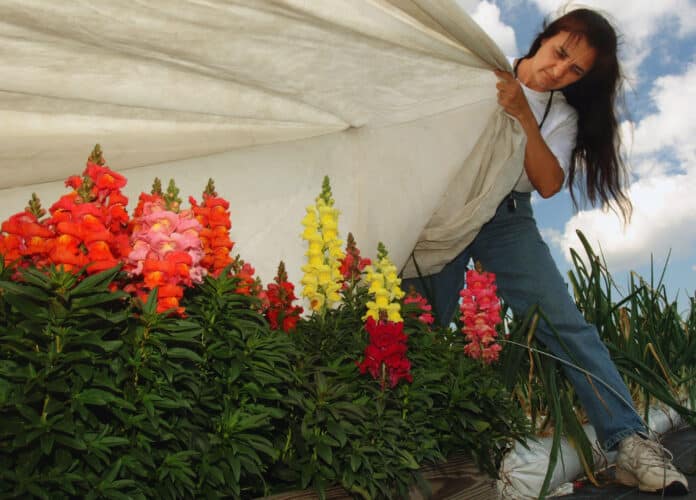It’s that time of year again. The long sleeve shirts come out of their boxes. The patio actually seems inviting. The baristas stop assuming you want your drink iced. Yes, the first taste of autumn in Florida is upon us. Well, it was. By the time you read this it’ll probably be in the 80’s again, but that won’t last forever. This year, forecasters are calling for a warmer than average winter across the United States, with a weak El Nino fueling increased rain in the southeast. While “warmer than average” may sound inviting, it can actually be quite dangerous for both commercial farmers and backyard gardeners. When temperatures are warm, plants may not get enough time in cool air to stimulate dormancy. When a freeze does come – and statistically speaking, it absolutely will – these fully awake plants are much more vulnerable to damage. This pattern of warm winters with strong freezes interspersed has become more frequent over the past few years and was the source of moderate losses in the Florida blueberry crop this year and heavy losses to the Georgia peach crop the year prior.
Homeowners should have a plan in place to protect their plants. Potted plants should be brought inside when freezing temperatures are expected. For plants that cannot be brought in, covering plants with a sheet can protect from damage in a light freeze. When using a cover, ensure that the cover reaches all the way to the ground to trap the heat from the soil and allow it to radiate upward to the foliage. Remember that it is very important that covers be removed in the morning when temperatures rise above freezing as any moisture on the sheet from rain or dew will evaporate in the sun and actually cool the plant below the outside temperature.
Commercial growers should also take the opportunity now to test their freeze protection plans. Overhead sprinkler lines should be flushed and clogged or broken nozzles should be repaired or replaced. The power supply to your well pump should also be inspected to reduce the likelihood of failure during a freeze event as interruption to freeze protection irrigation for even a half hour can result in damage to the crop. Growers using row covers should pull their equipment from storage and place it in an easily accessible area. Stored row covers make inviting homes for rodents and damaged covers should be replaced. High tunnel growers should make any necessary repairs to torn plastic. Those using heating systems like a kerosene heater should test their devices, ensure that they have enough fuel on hand, and also ensure that they have a venting solution in place as the fumes from heaters can damage crops.
So once the Thanksgiving leftovers are gone, the Christmas decorations come out, and I or my sister-in-law finish wearing a UF or FSU t-shirt for a day (we have an annual bet), take a moment to consider how your foliage friends will fare this holiday season. They’ll thank you in the spring.

